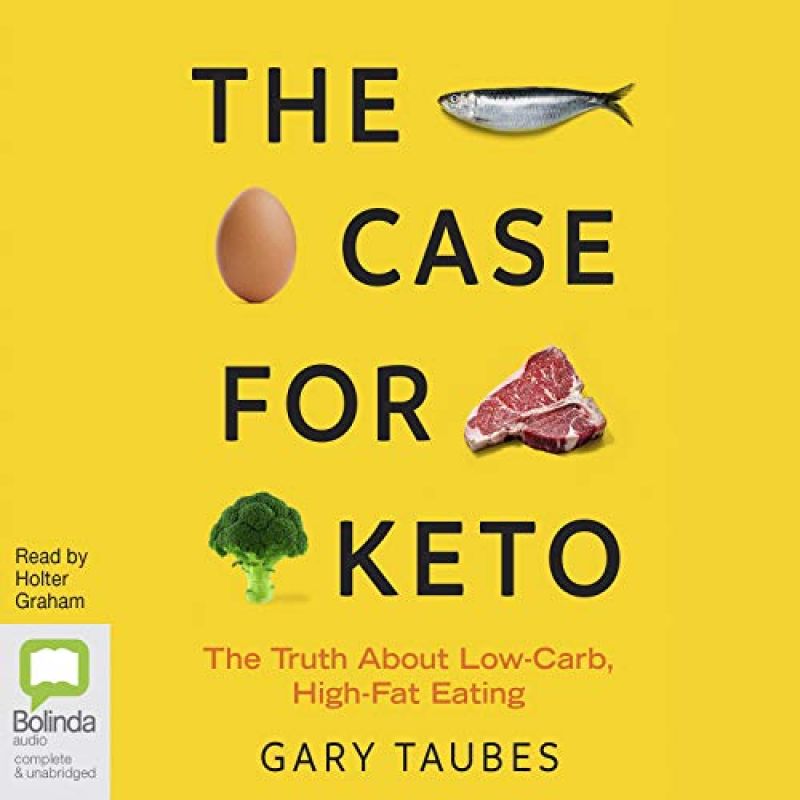The Case for Keto: the truth about low-carb high-fat eating
My Rating

Low carbohydrate, high fat, ketogenic diet
I am fascinated by health, longevity, fitness, nutrients, the Microbiome, and what is the ideal time for me and for my clients.
On a low calorie, high fat ketogenic diet, the primary focus is on consuming foods that are low in carbohydrates, moderate in protein, and high in healthy fats. Here are 20 foods you can include in your ketogenic diet, followed by 20 foods to avoid:
Top 20 Foods to Eat on a Low Calorie, High Fat Ketogenic Diet:
- Avocado: A nutrient-dense fruit rich in healthy fats.
- Olive Oil: A versatile oil that’s rich in monounsaturated fats.
- Coconut Oil: Provides medium-chain triglycerides (MCTs) for quick energy.
- Butter: A good source of saturated fats and vitamin A.
- Fatty Fish (such as salmon, mackerel, and sardines): Rich in omega-3 fatty acids.
- Eggs: A nutritious source of fats and proteins.
- Nuts and Seeds (such as almonds, walnuts, chia seeds, and flaxseeds): High in healthy fats and fiber.
- Cheese: Contains minimal carbohydrates and is a good source of calcium.
- Greek Yogurt: Choose full-fat options with no added sugars.
- Meat and Poultry (such as beef, chicken, and turkey): Excellent sources of protein and fats.
- Leafy Greens (such as spinach, kale, and lettuce): Low in carbs and packed with vitamins.
- Cruciferous Vegetables (such as broccoli, cauliflower, and Brussels sprouts): High in fiber and nutrients.
- Berries (such as strawberries, blueberries, and raspberries): Lower in sugar compared to other fruits.
- Heavy Cream: Adds richness to meals and provides healthy fats.
- Coconut Milk: A creamy alternative to regular milk.
- Dark Chocolate (at least 70% cocoa): A treat in moderation, rich in antioxidants and healthy fats.
- Olives: A great source of monounsaturated fats.
- Green Tea: Contains antioxidants and can boost metabolism.
- Bone Broth: Nutrient-rich and low in carbohydrates.
- Low-Carb Vegetables (such as zucchini, asparagus, and peppers): Provide fiber and nutrients while being low in carbs.
Now let’s take a look at 20 foods you should generally avoid on a ketogenic diet due to their high carbohydrate content:
20 Foods to Avoid on a Low Calorie, High Fat Ketogenic Diet:
- Grains (such as wheat, rice, oats, and barley): High in carbohydrates.
- Sugar and Sweeteners (such as table sugar, honey, maple syrup, and agave nectar): Spike blood sugar levels.
- Starchy Vegetables (such as potatoes, corn, and peas): Contain higher amounts of carbohydrates.
- Legumes (such as beans, lentils, and chickpeas): Relatively high in carbohydrates.
- Fruits (such as bananas, oranges, and apples): Higher in sugar and carbohydrates compared to berries.
- Fruit Juices: Concentrated sources of sugar.
- Sugary Sodas and Energy Drinks: Loaded with sugar and often high in carbohydrates.
- Low-Fat Dairy Products: Often contain added sugars to compensate for reduced fat.
- Margarine: High in unhealthy trans fats.
- Processed Meats (such as sausages, deli meats, and hot dogs): May contain added sugars and fillers.
- Baked Goods and Pastries: High in refined carbohydrates and sugars.
- Crackers and Chips: Usually made with grains and high in carbohydrates.
- Ice Cream: High in sugar and often contains additives.
- Sweetened Yogurt: Often packed with added sugars.
- Beer: High in carbohydrates
In “The Case for Keto,” science writer Gary Taubes challenges traditional dietary guidelines, arguing that a high-carb, low-fat diet is the root cause of major health issues, like obesity and diabetes. Taubes presents the ketogenic diet, high in fat and low in carbohydrates, as the solution, calling for a significant paradigm shift in our understanding of nutrition.
Taubes excels in explaining complex scientific ideas in an accessible manner, weaving together research studies, personal anecdotes, and historical contexts. His critique of the nutrition science field is compelling, and his presentation of the keto diet as not a fad but an evidence-based, effective approach to health and weight loss is persuasive.
However, some readers might find Taubes’ argument somewhat one-sided, as he heavily promotes the ketogenic diet while downplaying its potential downsides or the benefits of other dietary approaches. The book could also have benefited from more practical guidance on implementing a keto diet.
While the ketogenic diet proposed by Gary Taubes in “The Case for Keto” can have benefits, there are potential downsides and health risks to consider:
1. **Nutrient deficiencies**: A strict ketogenic diet can be low in fruits, vegetables, and whole grains, which are sources of important nutrients. This could lead to deficiencies in vitamins and minerals over time.
2. **Digestive issues**: The low fiber content in the ketogenic diet might lead to constipation or other digestive issues.
3. **Heart health risks**: The diet is high in saturated fats, which could potentially raise cholesterol levels and contribute to heart disease over the long term. However, some studies suggest that ketogenic diets can improve the lipid profile, highlighting the complex relationship between diet and heart health.
4. **Keto flu**: Transitioning to a ketogenic diet can lead to short-term side effects often referred to as “keto flu”. These can include nausea, fatigue, headaches, and irritability.
5. **Difficult to maintain**: The strict nature of the diet can make it difficult to stick to, particularly over the long term. This can lead to yo-yo dieting, which isn’t healthy or beneficial for weight management.
6. **Long-term effects**: There’s still much we don’t know about the long-term effects of following a ketogenic diet.
Before starting a ketogenic diet or any other significant dietary changes, it’s important to consult with a healthcare provider or a dietitian. Individual needs vary, and what works well for one person might not work for another.
Overall, “The Case for Keto” is an enlightening read, particularly for those curious about low-carb, high-fat diets. It pushes us to question long-standing dietary norms and encourages individualized approaches to nutrition, which may be its most valuable contribution.